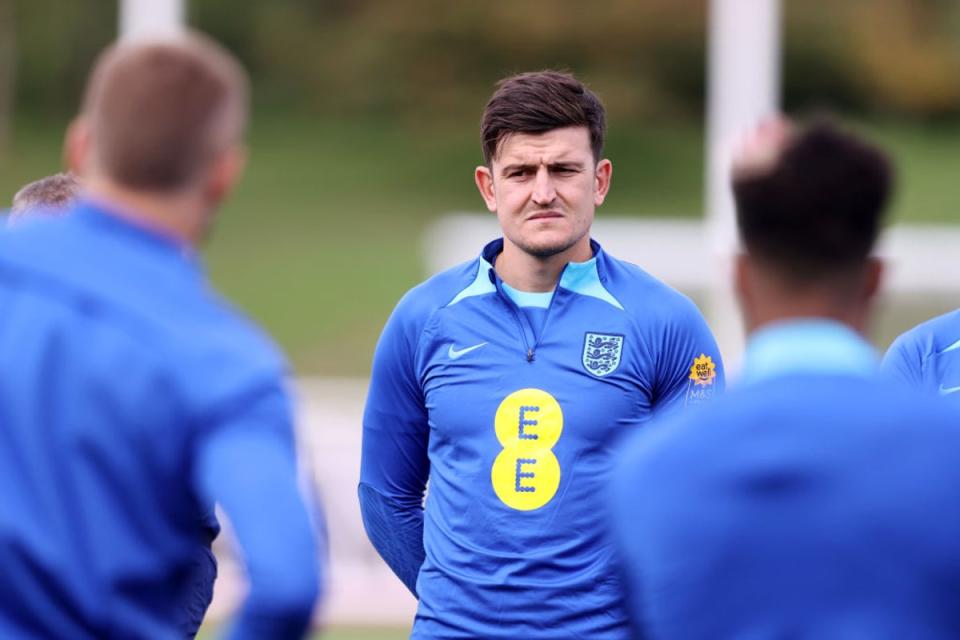Pressure and problems build for Gareth Southgate as England face pre-World Cup test
On Tuesday evening, Gareth Southgate called the England team together for the first proper meeting since the Hungary humiliation. He didn’t need to say that every minute counts from now on, because all of the players know it.
They're fully aware things need to be different from June. The England manager, for his part, would prefer a lot of things to be rather different right now.
It is difficult to complain about a trip to Milan in this kind of weather – in the middle of fashion week – but Southgate could really do with 10 days of it, and perhaps more forgiving fixtures. That’s what World Cup preparation camps usually look like as managers try to build the right atmosphere. That’s nevertheless what this represents.
“This is really your pre-World Cup camp,” Jack Grealish said. “We were saying before that before the Euros we had a good few weeks of training sessions, good friendlies, and we’re not going to get that this time. But everyone’s in the same boat, so it’s something that we need to embrace and look forward to.”
Such a sentiment alone reflects that these games against Italy and Germany have a strange feel, as they come at a strange time.
They are ultimately about the medium-term, and a last chance at ensuring everything is right for the World Cup, but along with that Southgate needs good results in short-term.
Pressure is building, after the way the summer went. Problems are building, given how the season has gone. So many key players are out of form or out of their club sides.
The first XI does not look obvious, and that isn’t because of the variety that Southgate has tried to nurture during his six years in the job.
You admittedly wouldn’t guess any of this from Southgate’s relaxed demeanour in the build-up to the Italy match.
That is partly because the manager told the players to draw a line under the June disaster, since there were enough caveats to wave away deeper concerns.
“The summer was really complicated in terms of players we wanted to see more of and players we couldn’t play in all of the games and players we felt we needed to give starts to that we knew would benefit us for this winter or beyond or both,” Southgate says. “Two games behind closed doors so yeah a lot of mitigating factors but internally we reviewed everything and we felt there were things we should have done better. “
While the basic fact of the summer was that most players didn’t want to be there after an exhausting two years with little break, it did raise bigger questions over whether Southgate should still be there. That goes beyond the Molineux chants of “you don’t know what you’re doing”, as Hungary repeatedly eviscerated England to rack up four goals.
It is the grander question of whether this regime is going stale, as can happen. The very squad make-up would suggest it, despite the frisson offered by Ivan Toney’s call-up and Jude Bellingham’s role.

This international break will represent the Borussia Dortmund midfielder’s grand audition to be England’s starting midfielder for a World Cup. Southgate will give him his chance but also needs it to go well.
The England manager is currently suffering from a paucity of options in the area, with James Ward-Prowse and Mason Mount the only two midfielders who took part in full-team training on Tuesday. Declan Rice, Henderson and Bellingham did have their own session, but it points to how so much stems from that area.
An argument can be made that it remains the problem Southgate has never fully figured out, as it has even come to cost them against Croatia in 2018 and then Italy in Euro 2020.
One of the reasons that he has gone for the unpopular three-man backline is to cover for the midfield, but the consequence of that is the reshaping of the side means there aren’t enough places for England’s array of attacking stars.
It is almost a contradiction, and certainly the main complication of Southgate’s time. The approach required for structure removes the squad of its main strength.
Consider the likely complexion of this team, against Italy.
England’s absence of options in midfield is in contrast to their abundance of choices in behind, with Southgate picking six centre-halves for this squad. Given his instinct is usually to lock up after bad spells, selection and pressure surely dictate Southgate will go for three at the back.
He will also go for Harry Maguire, certainly for one of the games, and to send a message as much as anything. The message from Southgate’s pre-game press conference was very much that he still has faith in his defensive leader, despite his issues at Manchester United. The manager wants to show this, which means it is likely that Maguire starts the first game, which happens to be Italy.

There is also a confidence that Maguire can remain a resolute figure with England, in the way that has been a problem at United. It is not just the different mood. It is also the different structure.
One informed view on Maguire is that he is still a fine defender when allowed to constantly attack the ball, and has a sweeper-type centre-half alongside him. That hasn’t always been the case at Old Trafford, which created these confidence problems in the first place. He is exposed in a way he hasn’t been for England.
If Maguire is in that three, it is almost certain that Rice and Bellingham will be the two in front of him, and Raheem Sterling and Harry Kane two of the three in front of them.
The question is over the roles alongside, and this is where the bigger questions about Southgate’s management comes in. The manager needs a link between the midfield and attack, which is why he generally favours the tactical discipline of Mount.
The Chelsea man is a fine player but it’s fair to say he doesn’t have the fantasy of England’s other options, which can leave the team looking durable rather than dazzling. That is all the more apparent when Southgate opts for a more classically defensive right wing-back over Trent Alexander-Arnold.
It means there aren’t too many available positions for flair, which has of course fired one of the main debates of Southgate’s time.
He now faces all manner of other criticisms, just at the point when a cycle is supposed to be coming to a peak.
It means Southgate faces some big decisions just before the World Cup – but then his most interesting comment on Thursday touched on precisely that.
“We were 22 games without a loss and I think for everybody you kind of think that’s just gonna continue sometimes and maybe you are not quite as ruthless on certain decision making, I feel I compromised in one or two things.
“I think when you have a difficult run it hardens your resolve and we are very clear on why those things happened and what needs to happen to put those things right. The advantage of having difficult spells as a manager before is that it’s not the first time I have lived through it. You what needs to happen in those moments and the level of analysis that needs to happen and what you need to do to get a response.
“I compromised certain decisions and you don’t win if you compromise. It was good for me to sharpen that focus again. I’ve got to be completely ruthless and create an environment for the players to excel and be at the level they have been for five or six years.”
It’s quite a message to send the players out on.

